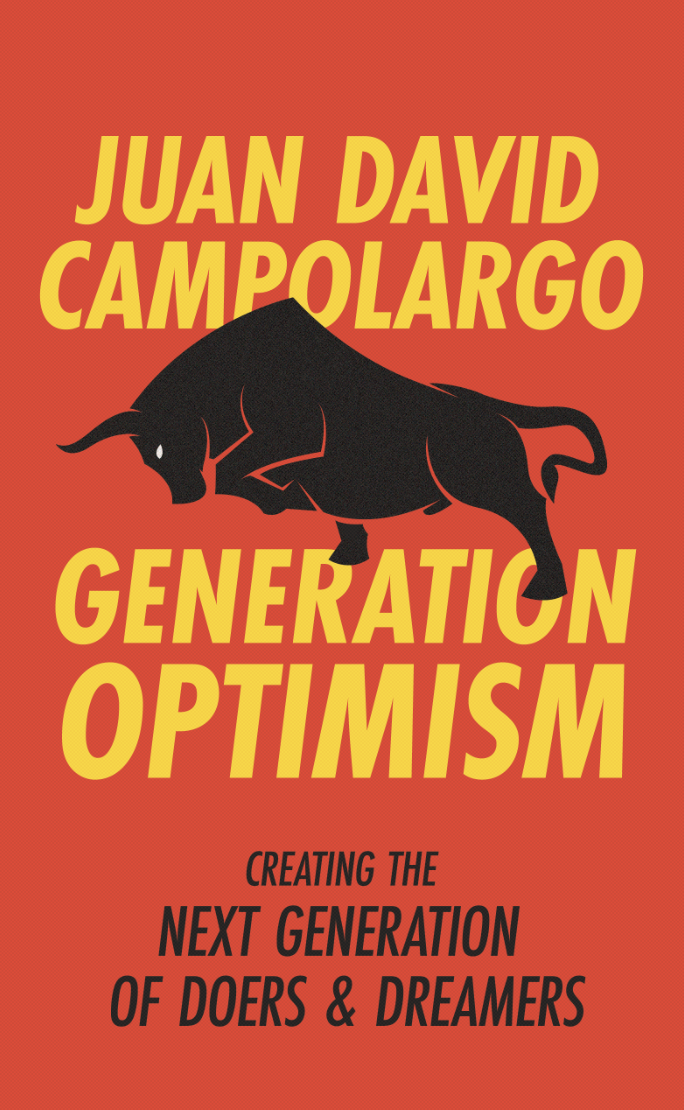Why Optimism Isn’t About Positivity
In the book Darwin’s Pharmacy, author Rich Doyle talks about finding ways to become aware of the feedback loops among our creative, linguistic, conscious, and experience choices. In other words, our capacity that we have to mold our lives. A lot of people go through life thinking that they have no control over what happens, that life just happens to them. That’s not true! We have a lot more control than we think, and this control I’m talking about comes from the power of feedback loops. You can decide how your day is going to go by meeting with a friend, going to your favorite restaurant, listening to your favorite music, and drinking a certain beverage. Again, you can decide to be optimistic and look for the best possible experience. Once you recognize this power of feedback loops, you can create the intention of being optimistic.
Self-awareness in our lives brings us, as gimmicky as it may sound, life-changing benefits. The free will that we possess to decide and execute the ideas and experiences we want to have is a source of true happiness and therefore optimism.
Psychologist and author Martin Seligman says the key to optimism lies, as he says, in our “explanatory styles,” how we describe life events to ourselves. Seligman believes that anyone can learn optimism, as I said, simply by asking themselves more questions before automatically defaulting into a negative response.
I couldn’t agree more with Seligman, but the amount of effort this takes is HUGE. We’re just used to falling into a negative reaction. We do it all the time. Pessimism is for lazy people; it’s our default reaction, while optimism takes effort and commitment.
DREAMS + REALITY + DETERMINATION + OPTIMISM = SUCCESS
A little while ago, I read a book by Ray Dalio called Principles. In this New York Times bestseller, Dalio shares the story of his life, and how he came up with his principles that are, as he says, the main cause of his success. I enjoyed every word of this book, mostly because he is the founder of Bridgewater Associates, which is the largest hedge fund in the world. I love investing and the stock market, so reading how he started, his journey, how he founded his company. By the way, his thought-process to investing was incredible.
One of the topics that resonated with me the most was one of his life principles. “Dreams + Reality + Determination = Successful Life.” Dalio writes that this formula is almost always true. But he forgot a variable: optimism. If you want this formula to work not almost always but always, optimism can’t be left out.
If you are a dreamer, you are realistic, you are determined, and most importantly you are optimistic. Success will just be a result of your actions.
Importantly, optimism is not about being positive as much as it is about being determined and enthusiastic. Suzanne C. Segerstrom in her book Breaking Murphy’s Law outlines what she and other researchers have found: rather than giving up and walking away from difficult situations, optimists attack problems head-on. They plan a course of action, seek out advice from others, and stay focused on solutions.
WHAT DRIVES ME EVERY DAY
At the beginning of the chapter, I mentioned how difficult it was moving to the United States. Thinking back and seeing how much I’ve changed, adapted, and developed has shown me how what was once just a dream became totally possible with determination + reality + optimism— and this is just the beginning.
I often ask myself, Why do I always have so much energy, never get tired or sick, and feel happy and optimistic? When you’re tackling difficult challenges and constantly looking for new opportunities, you have no time to be tired, sick, sad, or even pessimistic (I’m not superhuman; there are times when I feel sad or just don’t feel like doing certain things, but I remind myself of why I’m working toward, and all of these thoughts go away).
As I write this book in 2019, I’m an adviser/representative for the Downtown Advisory Commission of my city. I’ve started several companies and continue to start more. I invest in stocks, crypto-currencies, and startups. I’m able to speak four languages. I read more than sixty books a year. I’m going to give two TEDx Talks, and I’m a senior in high school.
Who would’ve ever thought that this crazy, weird, shy kid would be writing a book and talking to you right now? Well, it happened. This is just the starting point, and I can’t wait to see what my life will turn out to be in ten, twenty, and thirty years.
I couldn’t be more grateful to my mom for teaching me to be an optimist. Optimism is a skill that can be learned. If you are already an optimist, great! You will gain even more self-awareness and knowledge by reading this book. But if you are a pessimist or not sure where you stand, the next chapter will teach you how to control the little voice in your head that determines your style of thinking. Remember that you can be a passionate, compassionate, hard worker, but if you can’t control your mind, none of that really matters.
Here are some golden nuggets to keep in mind:
• The ability to adapt quickly will give you amazing dividends
• We will always have fears; we just need to learn how to control them.
• Always bite off more than you can chew.
• Develop routines.
• Take challenges. It doesn’t matter if you fail (remember the pilot’s secret).
• Pessimism is LAZY. To be an optimist takes effort and work.
• Dreams + Reality + Determination + Optimism = Success.

...
If you’re into interesting ideas (like the one you just read), join my Weekly Memos., and I’ll send you new essays right when they come out.